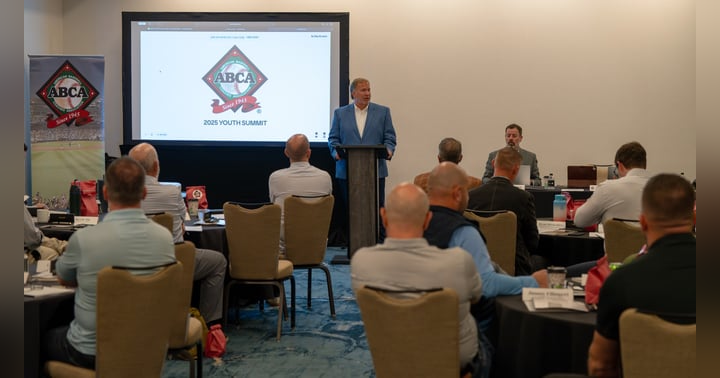The True Base Paths: Coaching, Growth, and Community in Youth Baseball Reflections from Clearing The Bases with Sean Chuipek

Step onto any baseball diamond in America, and you’ll find more than just the chalked lines and battered bases. You’ll discover a community—one built on hope, resilience, and the relentless pursuit of growth. That’s the spirit at the heart of the Clearing The Bases podcast, and it was on full display in our recent conversation with Sean Chuipek, co-founder and director of Muscle Baseball and Dynamics Baseball, and JV coach at Notre Dame College Prep in Morton Grove, Illinois.
In this blog, we dive deep into Sean's insights and coaching journey, exploring the essential values that shape not just better players, but better people. If you’re a coach, parent, or player, this is your invitation to step into the conversation and share in the wisdom that comes from decades on and off the field.
Building a Culture of Openness and Sharing
One theme echoed throughout our dialogue was the unique openness within the baseball coaching community. Sean pointed out a sharp contrast between baseball and other sports: while football coaches may guard their playbooks and philosophies, baseball coaches are, by and large, eager to share their drills, strategies, and practice plans. More often than not, a simple question leads to an overflowing inbox—seventeen attachments on everything from blocking progressions for catchers to advanced base running techniques.
This spirit of generosity is more than just a quirk; it’s foundational to the sport’s growth. When coaches come together to help each other, they build up the whole game. As Sean put it, “There’s not a day that goes by where I don’t question my own ability as a coach. The comfort I take is in knowing I have resources—people who are willing to help, both locally and across the country.”
For those new to coaching, this openness is an invitation. Don’t be afraid to reach out, ask questions, and join the conversation. And for the seasoned veterans, keep sharing. That next great coach is out there, waiting for your guidance.
Redefining Success: The Long Game of Player Development
Many travel organizations stake their reputation on college placements, promising parents and players a golden ticket at the end of the rainbow. But Sean and his team take a different approach. Instead of offering dreams, they offer preparation—focusing on the next step, not the final destination.
For Muscle Baseball and Dynamics Baseball, the mission is clear: prepare young athletes to compete at the high school level. “If you can’t make your high school baseball team, no college coach will know you exist,” Sean explained. “Success is about making young people more confident, competent, and ready to contribute as high school athletes.”
This incremental, step-by-step approach is a refreshing antidote to the pressure-cooker mentality that can dominate youth sports. It’s not about skipping levels or chasing scholarships from day one; it’s about laying down a foundation, one skill and one season at a time.
For parents and coaches, the lesson is clear: set realistic goals, celebrate each milestone, and understand that true development is a marathon—not a sprint.
The Power of Fundamentals: “Can You Play Catch?”
Ask any coach at tryouts what they’re looking for, and the answer might surprise you. It isn’t always the most powerful hitter or the fastest runner. Often, it’s the simplest skill: the ability to play catch with intent and accuracy.
Sean described his least favorite time of year—tryout season—and how, for all the excitement and heartbreak it brings, the first ten minutes are the most telling. “Go play catch,” he instructs, and then sits back to observe. Those moments reveal everything: discipline, attention to detail, and athletic maturity.
If a player can’t control the baseball, their journey is going to be an uphill battle. Yet, this skill is often neglected in favor of flashier drills or highlight-reel plays.
As a coach or parent, reinforce the basics. Mastering catch is not just about mechanics; it’s about focus, preparation, and intent. As Sean’s teams demonstrate in their synchronized catch play routine, discipline breeds excellence—and it all starts with the simplest throw.
Accountability and Embracing Failure
Growth requires accountability. Too often, the most talented ten- or twelve-year-olds breeze through youth leagues without being challenged or held responsible for mistakes—especially when winning takes center stage. But as Sean emphasized, “If you have to leave your best player in the lineup just to win a ten-year-old game, your team isn't good.”
Coaches must create a culture where players are accountable for effort, attitude, and character—not just results. Sometimes that means pulling a star player after a mental lapse or a lack of discipline, even if it means losing a game. The lessons learned last longer than any trophy.
Equally important is allowing kids to fail. In a world obsessed with success, we often forget that the best learning comes from mistakes. “Prepare your kid for the path—don’t prepare the path for your kid,” Sean advised parents. If a child can accept failure, learn from it, and bounce back, they’re not just preparing for baseball, they’re preparing for life.
Team Above Self: “We, Not Me”
Baseball is a team sport—increasingly, it’s played as an individual pursuit within a group setting. Private hitting coaches, showcase circuits, and highlight reels can overshadow the “we” with the “me.”
But as Sean and his coaching staff tell their players, “When we put on the uniform, I care about the team, not the individual.” It’s a message that can be hard for teenagers to grasp. Sacrifice bunts and situational hitting are not always glamorous, but they win games and build character. The willingness to move a runner over, to take a role rather than demand a spotlight, is a mark of maturity.
At every level, reinforce the idea that team success matters more than individual stats. Celebrate the unselfish play. Build a culture where “we, not me” is the guiding principle—on the field and in life.
Roles, Competition, and Earning Your Place
With the rise of continuous batting orders and equal playing time in youth ball, the jump to high school can be a jolt. Suddenly, not everyone hits or plays every inning. Roles become specialized, and competition is real.
Sean prepares his players for this shift by emphasizing roles and competition early on. “If you want to be the starting shortstop, go compete with those two guys and earn it,” he tells his teams. The message: nothing is handed out. You pay for the opportunity, but you earn the playing time.
This approach may be uncomfortable at first, but it’s essential. Life doesn’t guarantee outcomes—only opportunities. Instilling this lesson early builds resilience and self-motivation.
The Importance of Relationships
When it’s all said and done, the most rewarding part of coaching isn’t a win-loss record or a championship ring. It’s the relationships built along the way. For Sean, it’s the fist bumps at community events, the text messages from former players, and the invitations to milestones long after the last pitch.
Baseball is a vehicle for connection—between coaches, players, families, and the broader community. The bonds formed on the field extend into life, shaping not just athletes but citizens and friends.
Closing Thoughts: Keep Getting Better
If there’s one takeaway from Sean Chuipek’s experience, it’s this: never stop striving for growth. There’s no finish line, only a daily commitment to getting a little bit better—whether as a player, a coach, a parent, or a person.
In the Clearing The Bases community, we believe in the power of sharing, the value of fundamentals, the necessity of failure, and the primacy of relationships. If you’re committed to the same, you’re in the right place.
Thank you for being part of our journey. Subscribe to the podcast, share your feedback, and let’s keep building the kind of baseball community where everyone can thrive—on and off the field.
Until next time, remember people don’t care how much you know until they know how much you care.
Play hard. Stay humble. Keep clearing the bases.






